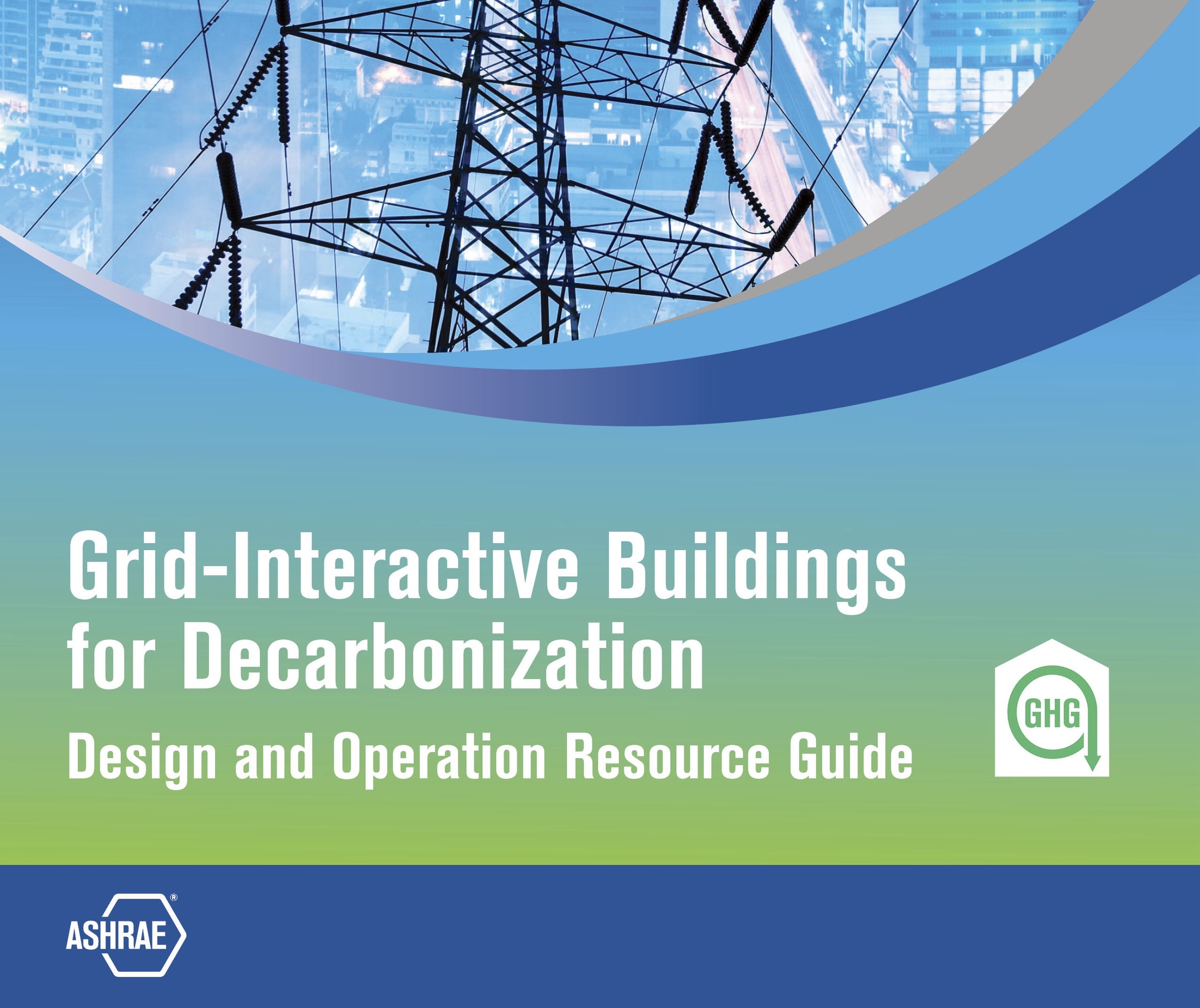A guide focusing on the critical role of grid interactivity in building decarbonization was recently published by ASHRAE.
The Grid-Interactive Buildings for Decarbonization: Design and Operation Resource Guide provides information on maximizing carbon reduction through buildings’ interaction with the electric power grid. The guide discusses smart technologies, renewable energy sources, and energy storage systems that optimize energy consumption and generation.
These technologies allow buildings to respond in real-time to grid signals, reducing overall demand and greenhouse gas emissions. The guide offers best practices, design considerations, and operational guidelines to target the three primary value streams of grid integration:
- Reduced Carbon Emissions: Covers how to make significant contributions to reducing carbon emissions through smart building-grid interaction.
- Cost Savings: Offers strategies to optimize energy usage and save on operational costs.
- Resiliency: Provides options to enhance a building's ability to withstand and adapt to changing grid conditions, ensuring uninterrupted operations.
The guide primarily focuses on commercial and multifamily buildings but also includes relevant information for the residential and industrial sectors. In addition to design guidance, the resource guide provides operational recommendations for new and existing buildings.
Related Stories
| Nov 29, 2012
Government policies help accelerate adoption of green building
Green procurement policies or green building mandates can help accelerate the adoption of green building practices, according to research by Timothy Simcoe and Michael Toffel.
| Nov 26, 2012
Minnesota law to spur development, job creation produced few jobs
Legislation that allowed local governments to direct excess property tax dollars from tax-increment financing districts into other private developments was supposed to kick-start construction hiring in Minnesota.
| Nov 26, 2012
How to boost resilient systems that are sustainable
Cities of the future can be both more resilient and more sustainable by promoting strategies that include solar power and green roofs, programs that minimize demand for energy, rain gardens, and permeable pavement.
| Nov 26, 2012
Developer of nation’s first LEED platinum skyscraper focuses on carbon reduction
The Durst Organization, the developer of the first LEED platinum certified skyscraper in the country, says it will not seek LEED certification for its residential pyramid planned for New York’s West 57th Street.
| Nov 26, 2012
Questions linger over ability of Miami's newer high-rises to withstand hurricanes
Some towers in Miami, rebuilt after a hurricane in 2005, were allowed to be constructed under older building codes instead of newer ones created after Hurricane Wilma.
| Nov 26, 2012
Changes in development and building standards needed for health of Potomac River
The Potomac River’s health stands to suffer if the region does not change its development and building standards, according to the Potomac Conservancy.
| Nov 16, 2012
South Dakota prefers LEED over building code on state projects
“(LEED is) much better than a mandatory building code because you get a little wiggle room in these projects,” said Mike Mueller, a spokesman for the South Dakota Bureau of Administration.












